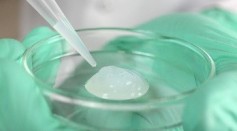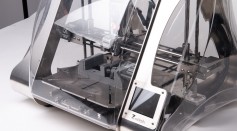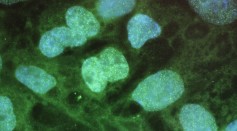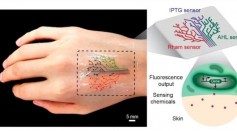hydrogel

Regulating Locomotion of Hydrogel Using Light and Electric Fields Holds Key in Developing Autonomous Materials

Hydrogel-Coated 'Smart' Sutures Can Hold Tissues in Place, Detect Inflammation and Release Drugs

Newly Developed Hydrogel Proven To Eliminate Traces of Cancer After Successful Brain Surgery in Mice

Alternative Energy: Novel Nanocomposite Hydrogel Could Help With Hydrogen Mass Production

Hydrogel Materials Shrinks to Three-Dimensional Electronic Nanostructure Using Ultrafast Laser Patterning

Nanoengineered Granular Hydrogel Bioink Achieves Previously Unattained Properties of 3D-Printed Biomaterials

Lobster Underbellies Inspired MIT Engineers to Make Better Hydrogel for Artificial Tendons

Researchers Discover How to Prolong the Lifespan of Organoids

Scientists Develop Injectable Hydrogels to Boost Vaccine Efficacy
Hydrogels Are Discovered to Be 'Similar to Humans' With Memory Functions

Engineers Use Live Bacteria to Create Bio-Responsive 3-D Prints for Varied Purposes
New Protein Hydrogel to Be the First Biocompatible Thermo-Responsive Drug Delivery Aid
Clay: Material of Construction, Biomaterial as Well
Blindness to be prevented through a hydrogel contact lens
Most Popular

How Technology Is Changing the Real Estate Industry?

Study Reveals High Turnover in Scientific Research Careers: What This Means for Future Scientists

How a Plant-Based Diet Can Protect Against Breast Cancer: Insights from Nutrition Research

Why It's So Difficult to Lose Weight: The Biological Explanation Behind Obesity






